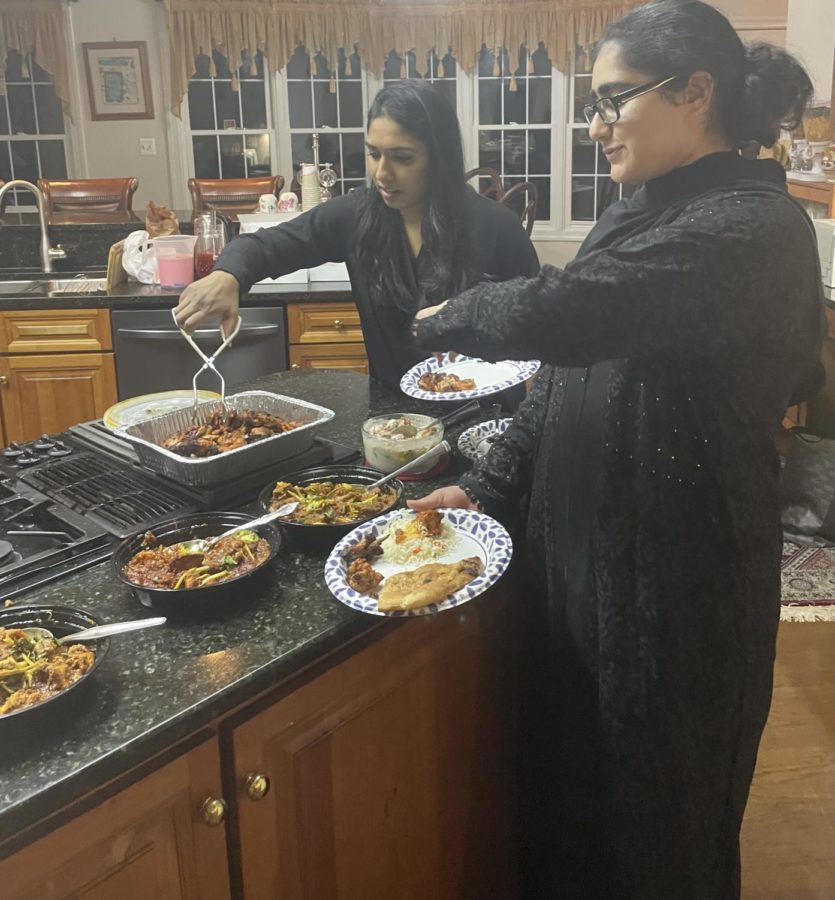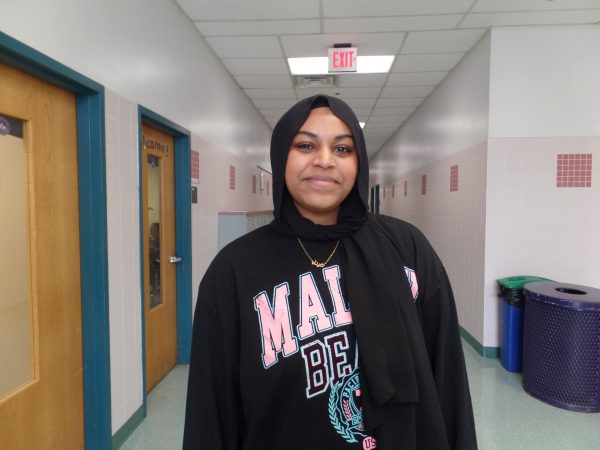Muslims celebrate Ramadan, the month of virtue
(Photo used by permission of Sara Khan
Sophomore Sara Khan’s family celebrates the end of their fasting period with an iftar meal.
April 20, 2023
“Bismillah.”
This is the first word uttered before breaking a long day of fasting, meaning “in the name of Allah.” From sunrise to sunset, Muslims who reach puberty and are in good health partake in fasting during the holy month of Ramadan. This month is sacred to Muslims because fasting during Ramadan is one of the Five Pillars of Islam, or basic acts that believers must perform.
In addition to the 13 hours of fasting, Muslims are encouraged to increase their ibadah or worship, donations and self reflection. These are the fundamental factors, while other factors are usually traditional elements that come from one’s own family and their cultural background.
According to Guidance Residential, Muslims believe that Ramadan is a time to get closer to Allah, or God, and refrain from the pleasures of the world, such as watching TV, listening to music, cursing, fighting and engaging in sexual activity. With less time spent on these aspects, Muslims read more from the Quran, pray and repent.
“I’m trying to limit how much music I listen to because that is one thing I struggle with,” junior Rimsha Farid said. “I think by doing this I’ll be able to focus more on the actual goal of Ramadan, which is to increase my relationship with Allah.”
After restricting themselves, Muslims substitute these elements for greater acts of worship. Substitutions may include staying up and praying the night prayers, reading or learning more about Islam and simply just improving one’s behavior.
“I am going to try my best to read all 30 Juz [chapters] of the Quran and complete all 30 days of fasting, while still keeping up with school work,” sophomore Manahil Khattak said.
There are a variety of ways Muslim families celebrate Ramadan. Some choose to have a joint feast with relatives and friends while others choose to have a more intimate Iftar or dinner with only close family members.
“I really love fasting with my family and just enjoying our big feast together,” sophomore Sara Khan said. “We usually make a traditional egg roll that only the people who fasted that day get to enjoy, and I think that is just so fun and special to my family.”
After 29 or 30 days of fasting, Muslims are awarded with a special holiday after Ramadan called Eid. This holiday is typically celebrated for one to three days, depending on the family. There are numerous ways Muslims choose to celebrate Eid, such as exchanging gifts, attending family gatherings and simply hanging out with friends and family.
“Every Eid morning we all gather at my aunt’s house and she cooks us these special food-dyed eggs as well as an assortment of different traditional breakfast dishes,” freshman Khadija Wajdi said. “We eat, talk and just enjoy each other’s company.”
Many found it difficult in previous years to partake in this tradition as they still had to attend school. In contrast, this year Eid will be celebrated as an FCPS official school holiday. Whether or not school counties decided to formally set aside a day for Eid, many families chose to still allow their children to take off from school that day.
“I think it’s cool that they’re finally giving the day off for kids who can’t or won’t miss anything,” Farid said. “I think I liked last year’s observance day more because missing school just added to the spark of Eid, but I still think they should keep it as an official holiday.”
As Ramadan ends on April 22, Muslim families will aim to continue the good habits created in Ramadan and implement them further in their day to day lives. According to IslamCity, Muslims believe it is important to keep growing your deen (religion) even after Ramadan has ended, that way they may feel closer to Allah at all times.
“Ramadan isn’t only about the amazing food or the lasting family traditions, but rather it is more about the growth of heart and mindset,” Khan said. “The more self reflection you do this Ramadan, the more you’ll feel rejuvenated as a person in the future.”



